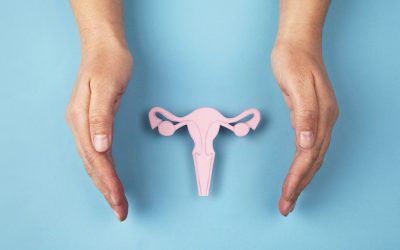Going to the dentist isn’t everyone’s cup of tea. In fact, one survey from 2018 found that over 60% of people are afraid to sit in that infamous chair. So it probably comes as no surprise that your little ones might be, shall we say, a tad hesitant for their semi-annual checkup as well.
Over time, your kids might get used to the idea of seeing a dentist twice a year (or more), even if they don’t like it.
But if it’s time for your child’s very first visit to a dentist, then you may need to set the stage to make it a success.
First, check in with your kid’s pediatrician.
There’s nervous and then there’s nervous — i.e., extremely anxious. It’s normal to feel a little nervous about medical offices. It happens to adults and kids alike and for various reasons. But it’s possible that your child’s anxiety about seeing a dentist goes beyond the so-called white coat syndrome.
Maybe there’s an underlying reason that your child strongly resists new experiences.
Very young children can be naturally resistant to the unfamiliar, which makes sense. But if your 6-year-old is still throwing a tantrum-level fit about something as routine as a six-month cleaning, there might be something else going on. He could be highly sensitive, for example, and need extra time to process the situation.
And if you parent a child who’s highly sensitive or has other neuroatypical tendencies, then you may need special guidance in helping your little (or not-so-little) one participate in routine day-to-day life activities.
In any case, start with your child’s pediatrician in your quest to find the right dentist. She might have a colleague or friend she can personally recommend, or she might offer you resources on dentists that work with highly sensitive children. (But even if your child is neurotypical, your pediatrician is a good first resource for recommendations.)
Then have a chat with your kids.
Don’t underestimate the power of a simple conversation. A two-year-old isn’t going to be open to a heart-to-heart about the dentist, but an older preschooler may be. Even if it’s not a totally interactive experience, talking about what to expect with your kiddo may help break the ice on the experience. Consider:
- Using simple, positive language. Don’t get into the specifics of everything that could happen at a dentist’s office. Use positive, age-appropriate language to describe the basics. The more info you give your kids, the more questions they can ask, and that might backfire, especially if you’ve got a worrier.
- Playing pretend. Model what happens at a first visit with your kids, either by playing dentist yourself or letting your kids practice with their stuffed animals. Avoid scarier elements, like the whirring noises of electronic equipment, and stick with a simple routine so your kids can get the gist.
- Avoiding a tagalog dental visit. You might think it’s a good idea to take your kids to see your own dental checkup, but experts caution against this. If you’re not so keen on the dentist yourself, your child might pick up on that unspoken anxiety and get more nervous herself. But even if you’re A-ok with your dentist, an adult dental environment — sterile, clean, and typically neutral or understated decor — can be off-putting to kids.
Remind your kids that dental care is necessary, not optional, just like going to the doctor or eating well. The more positive you can make the first experience, the better. And that starts with setting expectations appropriately.
Look for a good pediatric dentist.
Dentists can treat people of all ages. You don’t have to take your kids to see one who specializes in child dental care. But pediatric dentists do tend to offer some strong advantages, including:
- Specialized knowledge
- A kid-friendly atmosphere
- A staff of people who regularly work with children
- Incentives for good behavior
Not every pediatric dental practice will offer the same amenities or necessarily cater to young children. But it’s more likely you’ll find a good environment for kids at a pediatric practice. That might include a fun office decor scheme, toys to play with or electronics to enjoy in the waiting room.
Pediatric practices also tend to use child-friendly language, like calling cavities “sugar bugs,” which may help to disarm some kids.
The hygienists are used to working with kids, too, which means they’ve seen all manner of behavior, including anxiety. You won’t likely faze a seasoned hygienist who understands your little one’s fears.
And when all else fails, there’s bribery. Just kidding — kind of. A pediatric practice may offer your child a special prize after a visit, like a small toy or balloon, and this can be very motivating for some kids. It’s also a way to end on a positive note, even if there were tears during the actual cleaning.
And make it a regular thing.
Good habits happen with consistency. You probably know that twice-annual dental cleanings help you take care of your teeth. The same goes for your kids. Seeing a dentist is important, even before they get their adult set of teeth.
Wonder why your kids need regular checkups before they even have their permanent set? There are a few good reasons to make semi-annual cleanings a part of your young child’s routine, such as:
- Establishing a baseline. The American Academy of Pediatric Dentistry recommends an initial dental checkup by age 1 or whenever the first tooth pops up, whichever happens first. That might seem early, but oral health goes beyond teeth and includes gum health as well. Starting dental visits early can help establish a baseline for dental health. Plus, the earlier you go, the more likely your kid will accept these visits as just a part of life.
- Follow-up care. Kids, especially very young ones, may not have the dexterity — or inclination — to brush properly, let alone floss. Checking in with a dentist every six months ensures a thorough, proper cleaning. The hygienist could even offer tips to make daily oral care less of a struggle (if it is one).
- Catching problems early. Over time, your child’s dentist can help identify problems before they become serious issues. An unchecked cavity might evolve into something else. And while some kids can wait on fillings if they don’t have their permanent teeth yet, others might need a filling asap. Your child’s dentist can help you make that choice.
Dental hygiene habits should start early — for good reason. By age 8, just over half of kids (52%) will have had a cavity in their primary teeth according to the CDC. And minor dental issues can turn into big problems if left untreated. By establishing a routine with your child’s dentist early in life, you may help him enjoy a healthier, happier smile for life.







